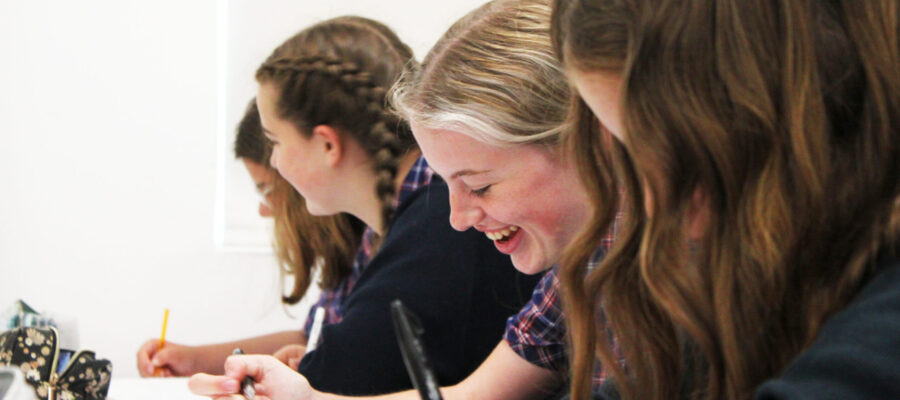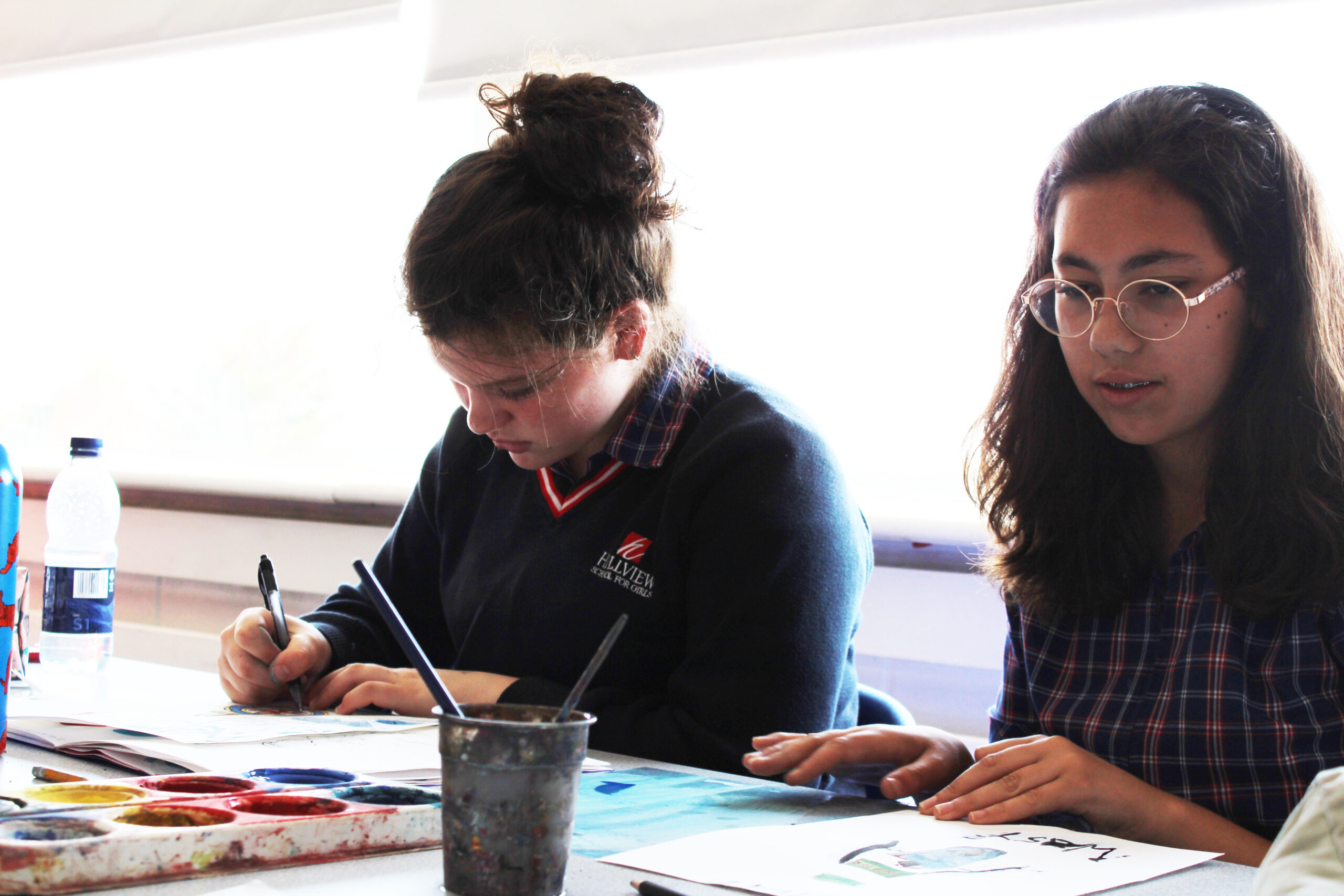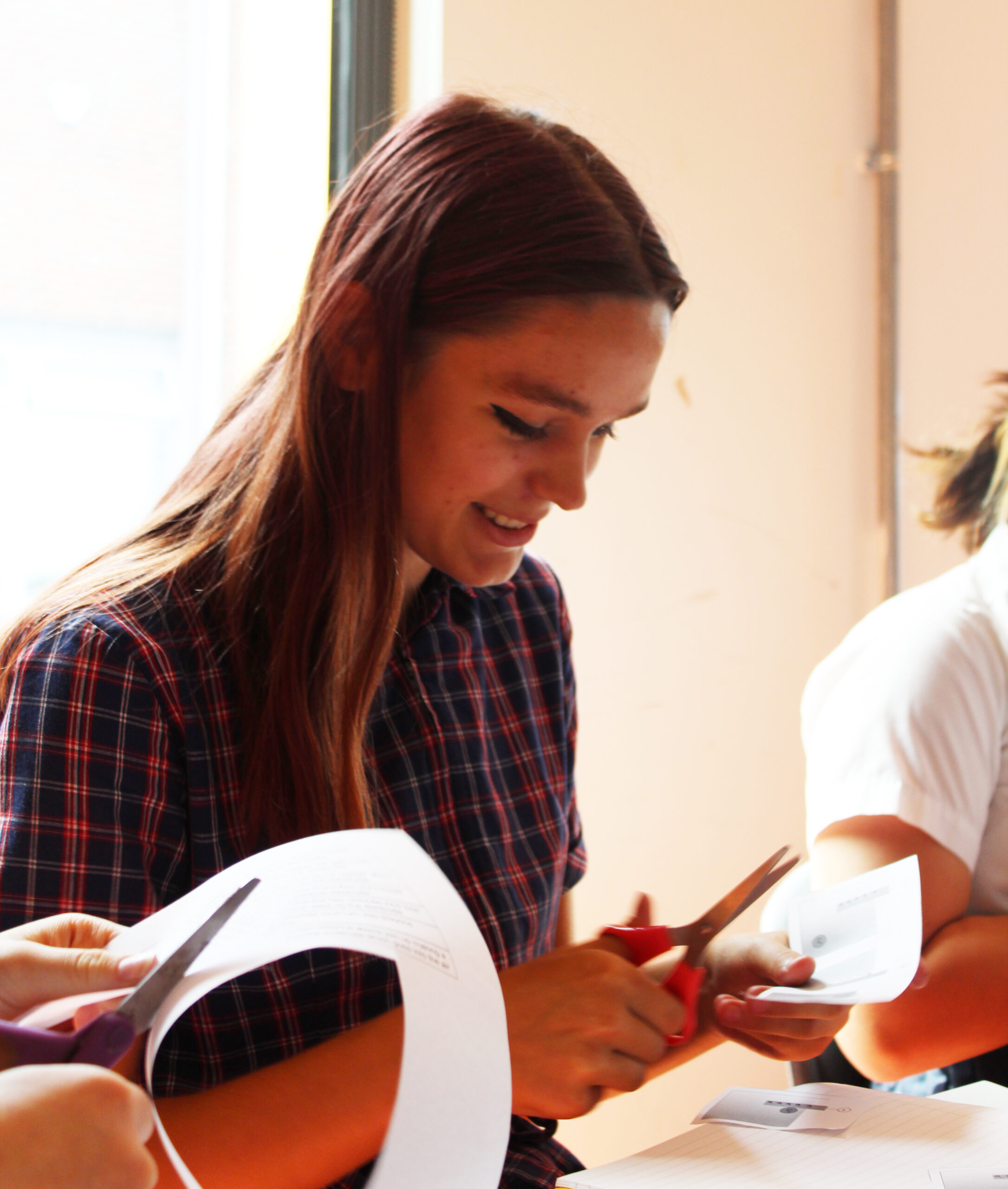
Year 9 Accelerated Curriculum
Our Year 9 accelerated curriculum is designed to prepare our learners for the new GCSEs and meet their aspirations and interests. This year acts as a transition year, retaining some of the breadth of the Key Stage 3 curriculum whilst allowing students some choice in the subjects they continue with.
This is a transitional curriculum that will ensure students are ready for the rigour of GCSE level work in Year 10 and 11 and are able to select some of their curriculum options in the foundation subjects.
Students will have lessons in one of:
Humanities – Geography or History
Languages – French or Spanish
Performing Arts – Dance, Drama or Music
Visual Arts and Design – Art, Food technology, Textiles or Graphics
In addition to studying one of Humanities, Languages, Performing Arts and Visual Arts and Design, students will also have the opportunity to pick an extra specialist learning subject so they can develop skills in two disciplines within one of these areas (one additional humanity, one additional language, one additional performing arts OR one additional visual art).
CORE SUBJECTS
Year 9 – Skills
- Comparison
- Evaluation
- Planning
- Structuring an argument / essay
- Identify and select
- Summary
- Creativity
- Analysis
- Synthesis
Year 9 – Knowledge and Understanding
Evaluative language and approaches (specifically as required by Edexcel for GCSE)
Influence of context on Victorian literature.
Generic conventions for non-fiction.
Unseen poetry analysis and comparison.
Effective, independent note-taking and annotation.
Term 1: Women’s Voices
Term 2: 19th century stories
Term 3: ‘Much Ado ..’ / ‘Romeo and Juliet’
Term 4: ‘A View from the Bridge’
Term 5: Time and Place poetry
Term 6: Genre writing
Year 9 – Skills
Analyse worked examples
Mark own work accurately
- Know and understand formulas
- Able to extract information from text
- Multi step multi topic problem solving
- Grade 4 problem solving
Familiarised with exam vocabulary
Year 9 – Knowledge and Understanding
Calculations
Expressions
Angles and Polygons
Handling Data
Fractions, Decimals and Percentages
Formula and functions
2D shapes and transformations
Probability
– Measures, accuracy and estimations
Year 9 – Skills
Knowledge recall: topic by topic
Application: more complex ideas
Concluding and evaluating; using scientific ideas to support conclusions
Mathematical: drawing and interpreting graphs, standard form, more complex equations.
Practical: completing required practical tasks recall of methods, applying to new situations.
Year 9 – Knowledge and Understanding
Cells
Digestion
Animals and plants
Disease
Atmosphere
Earth’s resources
Atomic structure
Periodic Table
Bonding
Energy stores
Energy resources
Heating
Molecules and matter
Year 9 – Skills:
- Project working
- Self evaluation to criteria
- Target setting
- Presenting
- Mini NEA (game)
- Software mastery
- Client requirements
- Abstraction
- Recall
- Evaluation
- Independence
- Making links
- Recommendation
- Justification
Year 9 – Knowledge and Understanding:
- Algorithms
- Programming
- Python programming
- Syntax
- Variables
- Debugging
- Artificial Intelligence
- Limitations of tech
- MS Office
- Use of tech in businesses
- Future tech + society and ethics
- Image manipulation
- Use of edited images in the media
- Producing a produce for a client brief
- Project management
- Information Technology
Year 9 Skills:
- Empathy
- Developing/expressing opinions
- Research
- Resilience
- Assertiveness
- Communication
- Self-care: mental health
- Literacy
Year 9 Knowledge and Understanding:
- Human rights
- Conflict
- Terrorism
- Radicalisation
- Crime & Punishment
- Relationships: law, consent, coercion, sexuality and homophobia, STIs and effective use of condoms
- Mental health: understanding /management of stress, depression, disordered eating
- Media + fake news
- Body image
Year 9 – Skills
HEALTHY LIFESTYLE BEHAVIOUR
Matching physiological theory to practice with GCSE theory knowledge being practised through practical activities.
Working practically towards a GCSE practical criteria in:
Fitness
Netball
Trampolining
Gymnastics
Football
Hockey
Rounders
Athletics
Summer games
OAA
Year 9 – Knowledge and Understanding
Theory
The skeletal system
The muscular system
Biomechanics
Types of training
Components of fitness
Skills
Isolated skills from GCSE spec. be aware of the basic and advanced isolated skills required for each sport.
Competitive situations
To know what makes a successful performance in terms of the GCSE grading criteria and what need to be achieved to increase grade potential.
Holistic and healthy lifestyles
Be aware in the link between the theory of anatomy and benefits of PE and sport on healthy active lifestyles.
To experience the mental benefits of competitive sport and the stress relief associated with it.
Skills:
- Resilience
- Self-evaluation
- Target setting
- Evaluating a perspective
- Out of the box thinking
- Critical thinking
- Socratic questioning
- Avoiding ‘black and white’ thinking
- Professional presentation of self and work
- Abstract applications of concepts
Knowledge and Understanding:
Good and Evil
Capital Punishment
Beliefs about Deity (key focus on concepts of creation)
Religion and Psychology
Religion and Work
ACCELERATED CURRICULUM
Humanities
Year 9 – Skills
Fieldwork enquiry skills
Application of fieldwork data to models e.g. Butler model – critiquing models
Use of quantitative and qualitative data
Interpretation, construction and analysing of maps and graphs e.g. scatter graphs, correlation etc.
Decision making skills
Summarising complex information
Use of data sets
Analysing data e.g. global tourism data
Use and construction of info-graphics
Decision making / issues analysis skills
Further development of atlas and map skills – specifically linked to the African continent
Preparing a debate
Use of weather maps and weather satellite images
Construction of annotated land form diagrams – coasts
Assessment Opportunities:
Every test will be modelled on the AQA GCSE format – i.e. short answer, multi choice, use of diagrams, extended answers and a long answer that includes multiple tasks. Each test will be completed after each topic.
Field Work Tasks to build capacity at GCSE. Fieldwork write up will also follow the general format, will be more detailed than Year 7 and 8.
Year 9 Knowledge and Understanding
Tourism – global tourism, impacts of tourism, management of tourism, tourism theory, ecotourism etc. The impact of coronavirus on the tourism industry, with regards to airports, airlines, travel companies and countries that rely on tourism for income (large part of their GDP)
World biomes and then focus on Tropical rainforests – distribution, characteristics, human impacts, focus on palm oil and its future. Causes of forest fires in the Amazon rainforest.
Weather and extreme weather – linking to lessons studied during home learning and using resources from the KS3 textbook
Human and physical geography of Africa and issues facing Africa. Introduce Congo Basin Rainforest to link to TRF later on in the year. Apartheid can be linked to Black lives matter
Coastal processes/landforms
Year 9 – Skills
Build on what has been covered in Year 7 and 8 but with greater focus on writing in the style of GCSE answers.
Drawing comparisons between the Ancient and Modern world.
Independent research and presentations.
Building a sustained argument.
Effective note-taking.
Year 9 – Knowledge and Understanding
Topic 1&2 – WW2 Causes, Dunkirk, Monte Cassino
Topic 3&4 – Ancient Rome and Carthage, the Punic wars and Hannibal
Topic 5&6 – Women in Ancient and Modern
Languages
Year 9 – Skills
At KS3, we are using the approach developed by Dr Gianfranco Conti: Extensive Processing Instruction (E.P.I). It prioritises the teaching of chunks from communicative functions over the teaching of single words and traditional grammar. This pedagogical cycle allows students to achieve fluency and spontaneity by going through the MARS EARS sequence:
Modelling & Awareness: present the target language chunks and patterns
Receptive processing phase: comprehensible input, thorough processing and input flooding – lots of repetition.
Structured Production: intensive retrieval practice phase. Highly structured forced-controlled – output tasks which recycle chunks just seen and previous ones.
Expansion*
Autonomy*
Routinisation*
Spontaneity*
*Planned communicative tasks – less controlled
*Explicit grammar teaching
The EPI approach allows teaching to develop fluency in all 4 skills through engaging and enjoyable tasks.
Year 9 – Knowledge and Understanding
- Where I live
- School
- Future studies
- Holidays & Travel
- Healthy living
Performing Arts
Year 9 – Skills
Performance:
Physical – Alignment, Balance, Control, Coordination, Extension, Flexibility, Isolation, Mobility, Posture, Stamina and Strength.
Technical – Accuracy of action, space, dynamics and relationships, Rhythm, Sense of Style and Timing.
Expressive – Communication of intent, Facial expression, Focus, Musicality, Phrasing, Projection, Sensitivity and Spatial awareness.
Choreography:
Action
Space
Dynamics
Relationships
Motif development
Contrast
Climax
Highlight
Transitions
Structure
Selection of aural setting
Choreographic intent
Appreciation:
Describe
Analyse
Interpret
Link to choreographic intent
Evaluate
Year 9 – Knowledge and Understanding
Physical skills
Technical skills
Expressive skills
Choreography skills
Safe working practices
Tribe Dance Company – history, dancers, stylistic features and movement vocabulary
A Linha Curva – movement and production features
Emancipation of Expressionism – movement and production features
Choreographic intent
Year 9 – Skills
Line learning, Interpreting a Script, Interpreting stimuli, Terminology, Research, Social/ group work.
Performance skills/conventions, commitment, projection, clarity, intonation, emotional commitment, Sustaining role, analysis & evaluate, Negotiate and work in a team.
Think of an individual – what makes them successful?
Lord of the Flies
London Riots/ Stage Combat
All schemes
Murder Mystery/ Lord of the Flies/ London Riots/ Physical Theatre
Practitioners
An exceptional Year 9 student looks like:
Modulates vocal skills with some confidence and ease
Uses gestures with precision and growing confidence
Uses stage space effectively, performing more DS
Uses conventions (Freeze frame, thought, split stage, narration, mark the moment, mime, cross cutting, monologue, forum theatre)
Understanding of style/ genre
Effective use of a range of terminology
Give clear examples in both written and verbal feedback (how it can be improved/ effect on the audience)
Uses the IDEA structure
Year 9 – Knowledge and Understanding
How to create an atmosphere
Use of terminology
Performance skills
Conventions
Practitioners – considers arts as propaganda, censorship
London Riots – considers prejudice and racism, social divide and stereotypes
Lord of the Flies – considers social divide, morality
Year 9 – Skills
Performing
- Pitch, tuning and rhythm are accurate.
- The Performance is expressive and stylistic.
- There is a consistent tempo and adherence to the pulse throughout.
- Ensemble skills are strong.
- Gives a convincing performance.
- Excellent breath control and posture ensures good phrasing.
- Performs an appropriately challenging part.
- Gives a convincing musical performance.
- Demonstrates excellent ensemble skills.
Composing
- The piece has a clear sense of style.
- Shows development of ideas.
- Meets the demands of the brief.
- Is imaginative and creative.
- Uses appropriate melodic, harmonic and rhythmic devices.
- Shows clear evidence of consideration of the musical elements.
Listening and Appraising
- The musical elements are at the core of the musical skills. Students explore these through listening and analysis of all musical styles and genre thereby developing an awareness and understanding so that they can apply them, with increasing skill across the key stages, in practice with composition and performance.
Year 9 – Knowledge and Understanding
- Demonstrates creative responses to musical starting points.
- Responds effectively to the music of others in an appropriate fashion.
- Discusses and critiques the music of others eloquently.
- Discusses and critiques own music eloquently.
- Uses appropriate musical terminology demonstrating excellent understanding.
Visual Arts and Design
Year 9 – Skills
Food, Nutrition and Health
Proteins
Carbohydrates
Knife Skills
Cooking Skills
Develop cooking skills learnt in year 7 and 8
Select recipes based on theoretical learning.
Presentation and Finishing Skills
Mini Food Preparation Tasks
Food Science
Heat Transfer
Functional and Chemical Properties of foods
Food Investigation Tasks
Skills to Analyse and Evaluate and Conclude
Sensory Analysis
Raising Agents
Food Safety
Food Safety
Storage and Buying of Food
Micro-organisms and Food Poisoning
Food Choice
Be able to cook dishes suitable for different dietary requirements.
Food Provenance
Primary and Secondary Food Processing
Assessment Project
Be able to plan, prepare and cook dishes that would be suitable for a sporting event or a food festival.
Analyse work against a brief.
Year 9 – Knowledge and Understanding
Safety
Food, personal and kitchen safety linking to key temperatures
Bacterial Contamination
Use of a food probe
Hazards
Nutrition and health
Functions of proteins and carbohydrates in the diet
Food presentation and cooking
Putting theory into practice through cooking dishes
Develop skills to present food well
To investigate how to make a high skill pasta dish
Food Science
Understand the different raising agents.
See how the raising agents work- cooking a Christmas chocolate log
Proteins: denaturation and coagulation
Understand Gluten in flours – mini-investigative project
Food Provenance
To be able to identify and explain primary and secondary processing. Milling of wheat – using this primary food product and making a secondary processed product e.g., flat breads.
Assessment Project
Understand the process of the second practical assessment at GCSE level.
Develop skills of research, presenting work and planning effectively against a brief.
Year 9 Skills:
Term 1 & 2: Foundation course that introduces learners to the full GCSE assessment objectives
Record
Develop
Experiment/Refine
Realise.
Learning & developing skills of research, exploration, experimentation, critical self-reflection & motivation to nurture resilience
Terms 3 to 6 Exploring the theme
Year 9 Knowledge and Understanding:
Develop skills to work as an artist
Resilience
Reflective
Independence
Respond creatively and expressively to contextual resources
Year 9 – Skills
Term 1 – 6: A course that introduces learners to the full GCSE assessment objectives
Record
Develop
Experiment/Refine
Realise
A range of workshops and artists/designers are explored to give students a full range of skills and knowledge to support them through the transition to GCSE.
Learning & developing skills of research, exploration, experimentation, critical self-reflection & motivation to nurture resilience.
Year 9 – Knowledge and Understanding
Develop skills to work as an artist
Resilience
Reflective
Independence
Respond creatively and expressively to contextual resources
Year 9 – Skills
Term 1 & 2: Foundation course that introduces learners to the full GCSE assessment objectives
Record
Develop
Experiment/Refine
Realise.
Learning & developing skills of research, exploration, experimentation, critical self-reflection & motivation to nurture resilience
Terms 3 to 6 Exploring the theme
Year 9 – Knowledge and Understanding
Develop skills to work as an artist
Resilience
Reflective
Independence
Respond creatively and expressively to contextual resources





